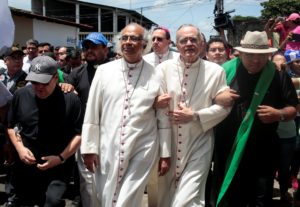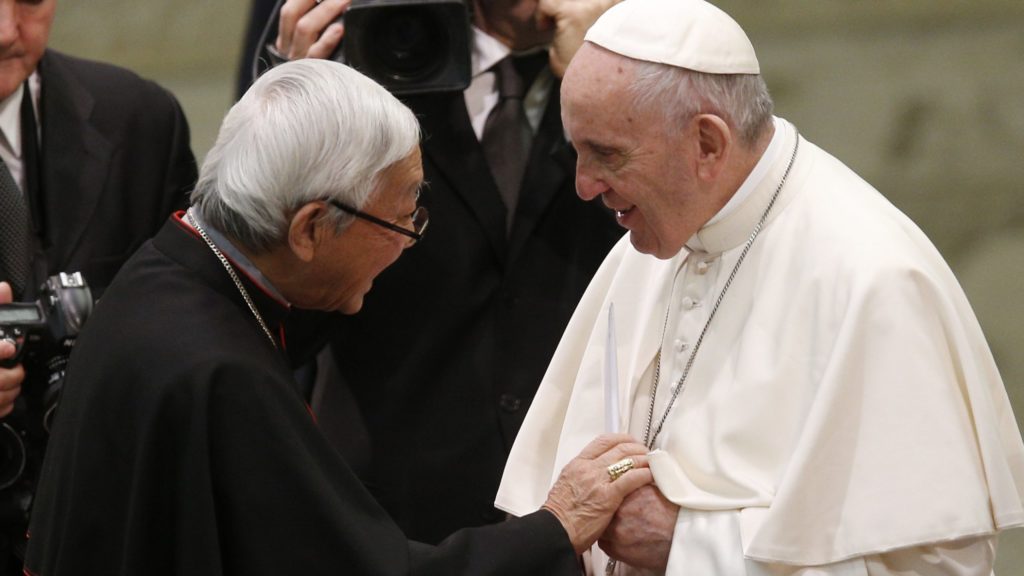Why hasn’t Pope Francis spoken up forcefully about the oppression of the Church by dictatorial regimes in China and Nicaragua? It’s a fair question whose answer can perhaps be found in the precedent of several popes of the 20th century.
First a quick look at what’s been happening lately in those two countries.
In China, the most blatant recent incident was the conviction and fining of Cardinal Joseph Zen and five others for not registering a relief fund for pro-democracy demonstrators.
The $500 fine imposed on the cardinal, former archbishop of Hong Kong, was apparently intended as a warning: “Don’t provoke us or it will be worse next time.” Meanwhile, the Holy See and the Chinese government agreed on another two-year extension of their 2018 provisional pact that allows the government to choose bishops subject only to a veto by the pope.
In Nicaragua, the regime of President Daniel Ortega has closed down Catholic TV and radio stations, expelled the papal nuncio and religious orders, and imprisoned Catholic leaders, including priests. As this is written, the case of Bishop Rolando José Álvarez of Matagalpa, accused of “damaging the Nicaraguan government” by protesting the misdeeds of the Ortega regime, has been referred for trial and the bishop is under house arrest.

Critics have faulted Francis for not protesting these assaults on the Church. But is the criticism reasonable? Consider what his predecessors did in situations not unlike these.
Start with Pope Pius XII. While it isn’t true that he said nothing publicly about Hitler’s persecution of the Jews, he did say relatively little. As historian Michael Hesemann shows in his richly documented study, “The Pope and the Holocaust” (Ignatius Press, $19.95), that was the price Pius paid to work quietly but effectively by mobilizing the Vatican diplomatic corps in Nazi-occupied countries to get thousands of Jews to safety. And when the German occupiers of Rome began rounding up Jews, Pius ordered convents and religious houses to shelter them and made Castel Gandolfo and the Vatican itself available for that purpose.
By Hesemann’s count, 960,000 Jews were saved directly or indirectly by the pope’s efforts.
After World War II, Pius practiced unyielding opposition to the Communist regimes of Eastern Europe that by then were persecuting the Church. But the 1960s and 1970s saw a significant change in the Holy See’s approach under St. Pope John XXIII and St. Pope Paul VI. With Cardinal Agostino Casaroli, Vatican secretary of state, spearheading the effort, the Vatican now pursued a policy of Ostpolitik that involved seeking accommodation with the Communists to gain breathing room for the Church.
True, St. Pope John Paul II set aside Ostpolitik in favor of a confrontational approach epitomized by his triumphant 1979 visit to Poland that contributed powerfully to launching the process that culminated in the downfall of communism. But that was only possible because he judged correctly that the regimes involved were by then decayed and vulnerable.
While different in many ways from those of the past, the challenges now facing the Catholic Church in China and Nicaragua also have significant similarities to the problems that the Holy See faced, first with Nazis and then with Communists, during and after World War II. Pius, John, and Paul concluded then that making the best of a bad situation would accomplish more good than confrontation. And if that is how Francis reasons today about China and Nicaragua, only future events can show whether he was right or wrong.

